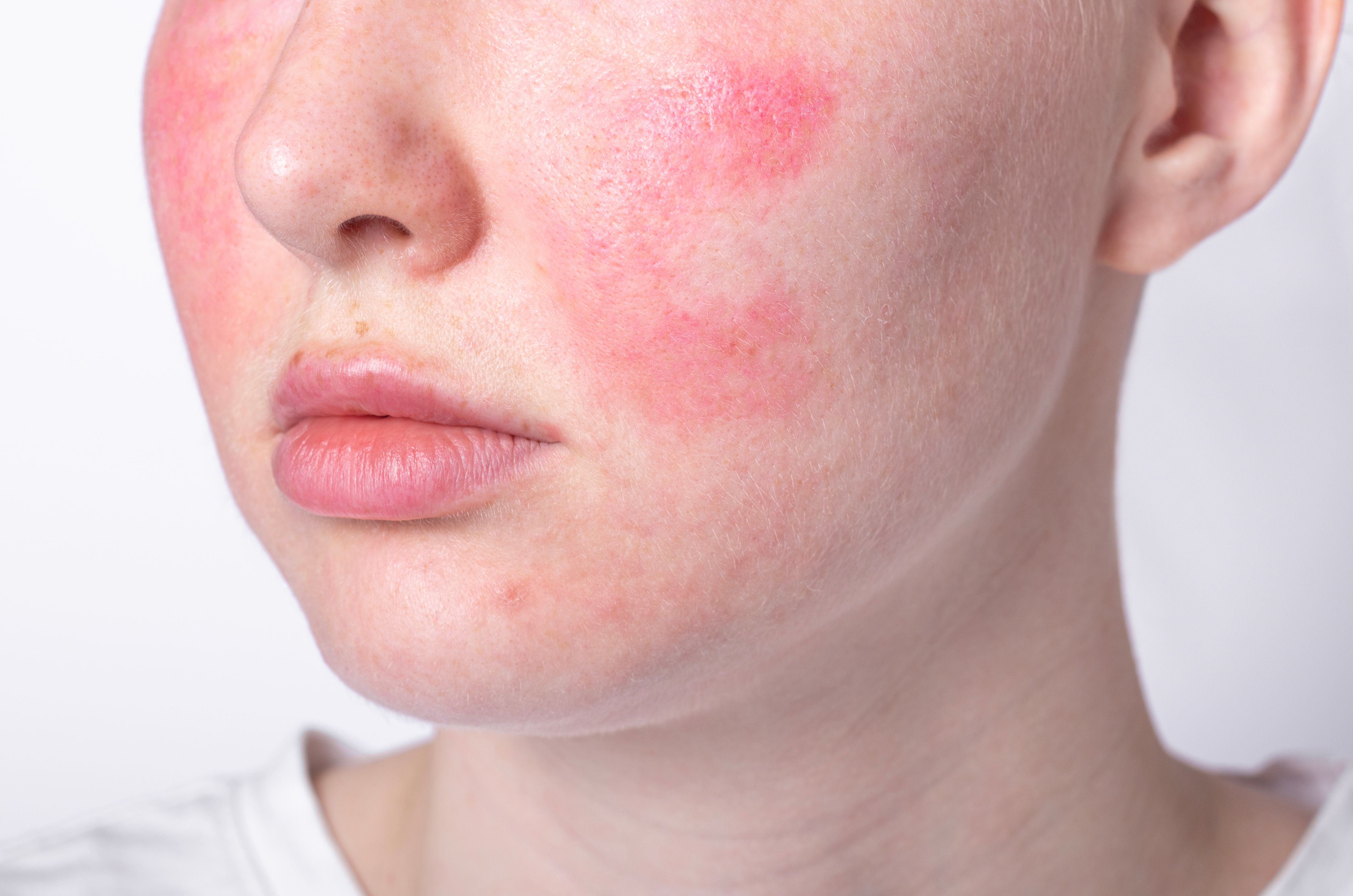- Acne
- Actinic Keratosis
- Aesthetics
- Alopecia
- Atopic Dermatitis
- Buy-and-Bill
- COVID-19
- Case-Based Roundtable
- Chronic Hand Eczema
- Chronic Spontaneous Urticaria
- Drug Watch
- Eczema
- General Dermatology
- Hidradenitis Suppurativa
- Melasma
- NP and PA
- Pediatric Dermatology
- Pigmentary Disorders
- Practice Management
- Precision Medicine and Biologics
- Prurigo Nodularis
- Psoriasis
- Psoriatic Arthritis
- Rare Disease
- Rosacea
- Skin Cancer
- Vitiligo
- Wound Care
Article
Skin microbiota linked with systemic disease, rosacea
Author(s):
A recent paper discovered that the skin’s microbiota is closely associated with a number of systemic diseases, underscoring the need for clinicians to not only address the microbiota but also consider appropriate antibiotic therapy when contemplating treatment in rosacea patients.
It has become increasingly clear that rosacea is not just a cutaneous disease with local implications but instead, part of a still largely obscure and complex systemic inflammatory disease process. A recent paper1 found that the skin’s microbiota is closely associated with a number of systemic diseases, underscoring the need for clinicians to not only address the microbiota but also consider appropriate antibiotic therapy when contemplating treatment in rosacea patients.
RELATED: Systemic antibiotics impact skin microbiota in rosacea patients
“From our past work, we’ve consistently seen a very strong link between rosacea and various systemic disorders, and what always came out from our analyses was that the GI comorbidities showed a clear-cut connection to rosacea,” says Anna Lien-Lun Chien, M.D., associate professor of dermatology and co-director of the cutaneous translational research program, department of dermatology, Johns Hopkins University, Baltimore, and co-author of the paper. “This is what led us to explore the role of the skin’s microbiota as a possible pathogenesis and common denominator between rosacea and systemic diseases.”
Dr. Chien and colleagues investigated the skin’s microbiome as it relates to the types and severity of rosacea. The researchers found that the bacteria environment of the skin in rosacea patients is very different from that in healthy skin. Some bacteria species were very abundant that are not typically seen in uninvolved healthy skin Dr. Chien says, and there were some bacteria that were very much reduced.
“We found the Campylobacter bacteria to be very much abundant in patients with rosacea. Interestingly, the same bacteria have also been implicated many times in the gut microbiome in patients with ulcerative colitis and other GI diseases. Perhaps this indicates a similar pathogenesis and explains why we often see GI diseases in rosacea,” Dr. Chien says.
Prevotella bacteria, which has been linked to cardiovascular conditions including atherosclerotic plaques, were also found to be increased in the microbiome of rosacea skin. This may contribute to the increased association of cardiovascular disorders in rosacea patients. Past reports have shown that Acinetobacter bacteria help patients with atopic dermatitis and those with allergic and atopic tendencies. Interestingly, Acinetobacter bacteria were found to be very low in skin of rosacea patients, which according to Dr. Chien, may explain why allergic diseases tend to be more commonly seen in rosacea patients.
“We found a tremendous amount of interesting data, which opens the door for many potential shared pathologic pathways between rosacea and systemic illnesses. We definitely can’t think of rosacea as a skin only disease anymore, especially with its increasingly clearer links to the microbiome and the associated systemic in ammatory diseases,” Dr. Chien says.
RELATED: FDA approves first topical minocycline for rosacea
According to Dr. Chien, dermatologists should actively ask their rosacea patients about their medical history, especially GI complaints, the medicines they are taking, and if they follow with a primary care physician.
Rosacea patients should be assessed if they exhibit any non-cutaneous symptoms and should seek appropriate specialist according to their symptoms.
Past studies have demonstrated that antibiotics can exacerbate some of the GI symptoms associated with rosacea and certain types of antibiotics have an even greater link to some of these GI associations. According to Dr. Chien, rosacea patients have a tendency for GI diseases and antibiotics may further exacerbate these illnesses.
Antibiotic stewardship is crucial Dr. Chien says, and while clinicians need antibiotics for rosacea, acne and many other skin conditions, it is very important to remain responsible when prescribing them to patients.
“The microbiome is quite complicated and as dermatologists, what we are doing and what we are prescribing can perturb that microbiome and until we know more, it is important that we are more mindful and practice good antibiotic usage in our rosacea patients,” Dr. Chien says.
References:
1. Rainer, B.M., Thompson, K.G., Antonescu, C. et al. Characterization and Analysis of the Skin Microbiota in Rosacea: A Case–Control Study. Am J Clin Dermatol 21, 139–147 (2020). https://doi.org/10.1007/s40257-019-00471-5
Newsletter
Like what you’re reading? Subscribe to Dermatology Times for weekly updates on therapies, innovations, and real-world practice tips.














